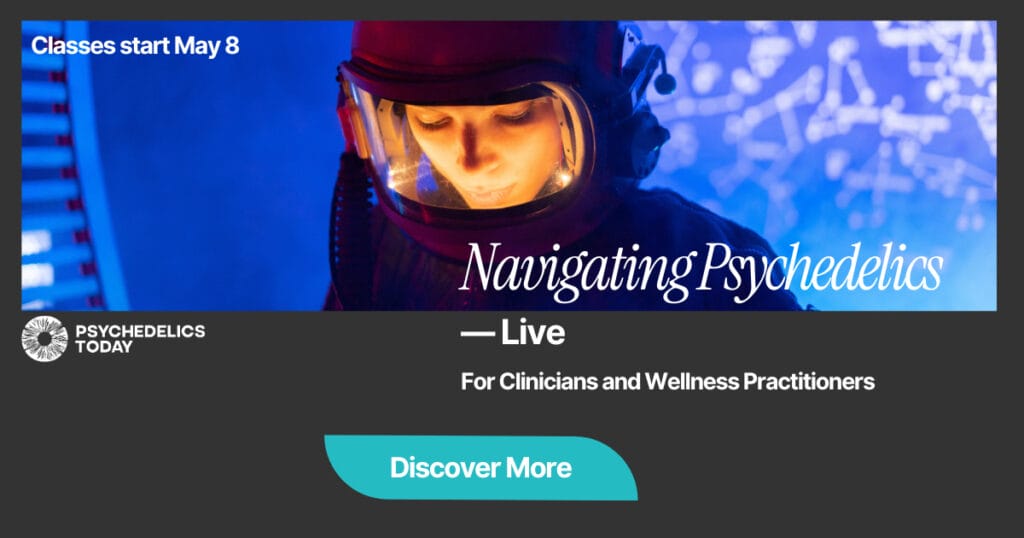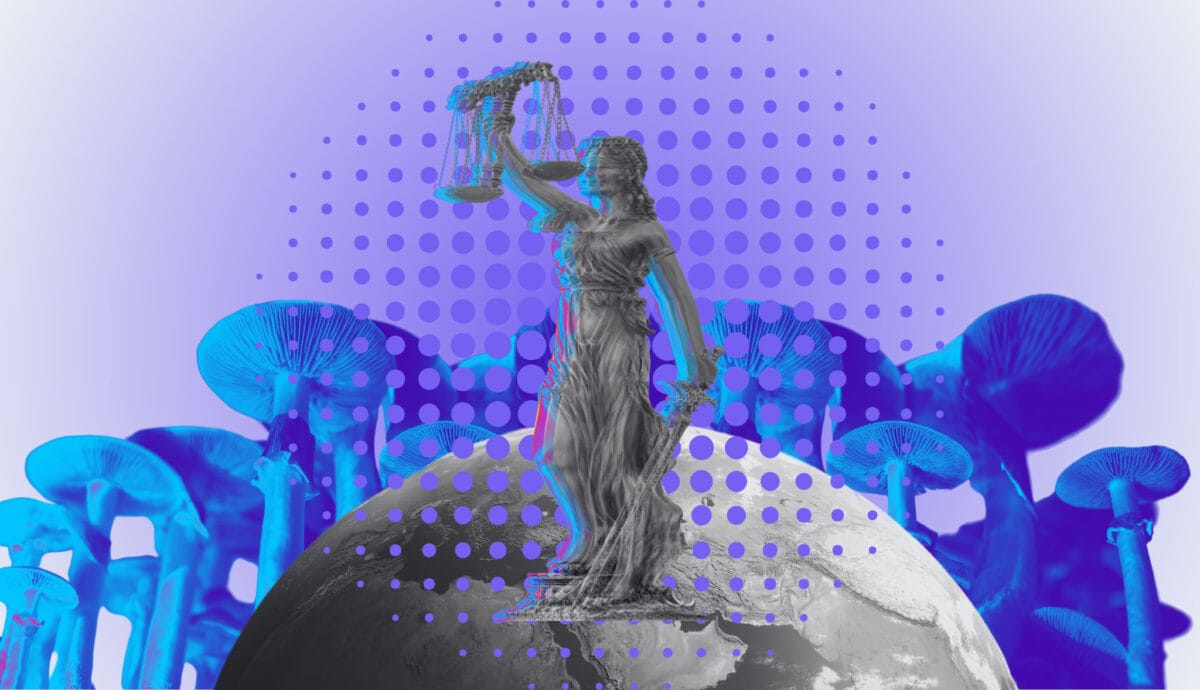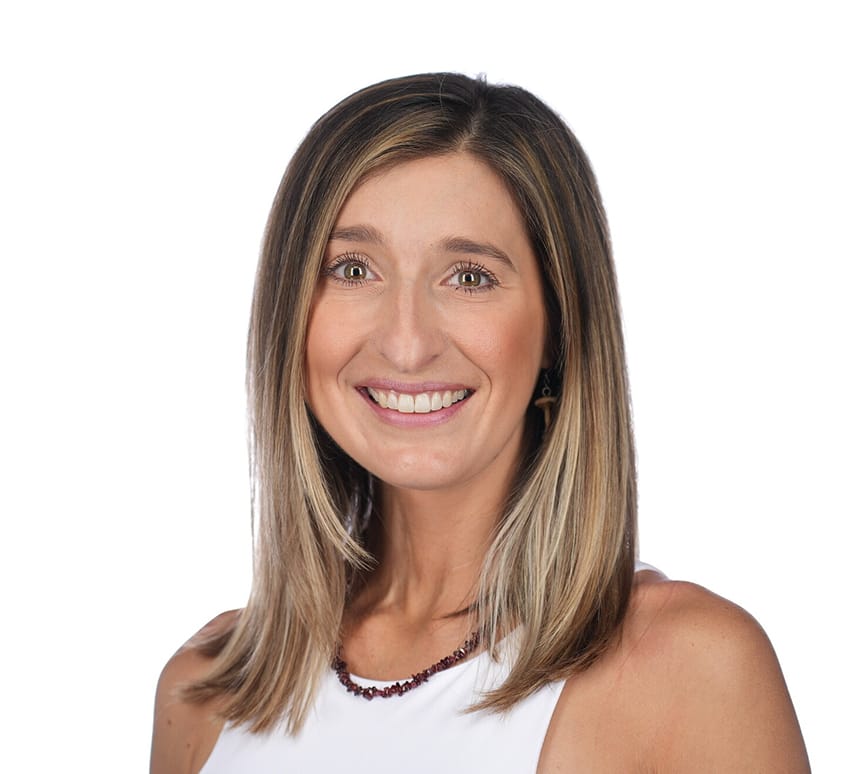Legal psychedelics frameworks in the U.S. and abroad are rapidly shifting thanks to growing recognition of their transformative benefits. Where are psychedelics legal currently, and what can we expect around legal reform in the near future?
As of April 2024, dozens of U.S. cities have deprioritized criminal law enforcement for possessing psychedelics, while two states have passed sweeping regulated adult-use bills. Globally, Australia became the first country to codify legal psychedelic therapy. And Jamaica leads the world’s commercial psychedelics sector, fully embracing psilocybin use, sales, and cultivation.
Psychedelics legalization is occurring in various forms around the globe. The bottom line? Adults don’t have to look far for places that allow entheogens for personal or therapeutic use.
**Disclaimer: This article speaks to the legality of possession and use of psychedelics for personal, therapeutic, and ceremonial use, and largely, does not reference legal possession and production for research purposes. Be advised: drug laws change rapidly and frequently. This article is not a legal resource and may not be 100% up-to-date. Always check the latest local, state, and federal laws before engaging in psychedelics use in the U.S. and abroad. Have we missed anything in this article? Reach out to our team at editor@psychedelicstoday.com with your input.
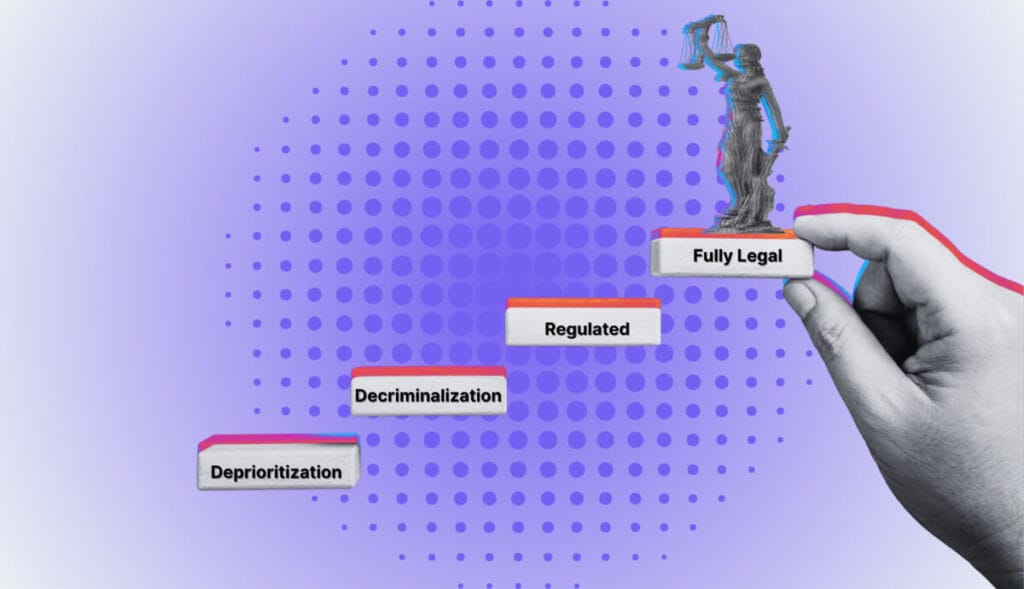
Defining Legal Psychedelics
‘Legal psychedelics’ is an incredibly broad term. People use it interchangeably with ‘decriminalization,’ ‘deprioritization,’ and ‘regulated use.’ These terms integrate and sometimes overlap. But they also hold distinct implications worth defining.
Fully legal psychedelics refer to hallucinogenic substances that adults can use, produce, and sell because no local, state, or federal law prohibits it. Jamaica has one of the most robust legal psychedelics industries, but it only applies to psilocybin-bearing mushrooms.
Regulated psychedelics access refers to places with targeted legalization bills that allow adults to purchase and use these compounds for specific purposes, such as therapeutic treatment or research. Regulated access can also include state-level bills that enable limited psychedelic use under professional guidance, such as in Oregon and Colorado. However, state-level bills do not supersede federal legislation.
Decriminalization involves reducing or eliminating criminal penalties associated with possessing or using psychedelics for personal reasons. Decriminalization codifies psychedelic use as a non-criminal offense. It does not legalize production, sale, or distribution.
Deprioritization means that local law enforcement agencies decide to treat psychedelic possession offenses as their lowest priority. However, the substances remain illegal under the law, and offenders could still face penalties from state and federal prosecutors.
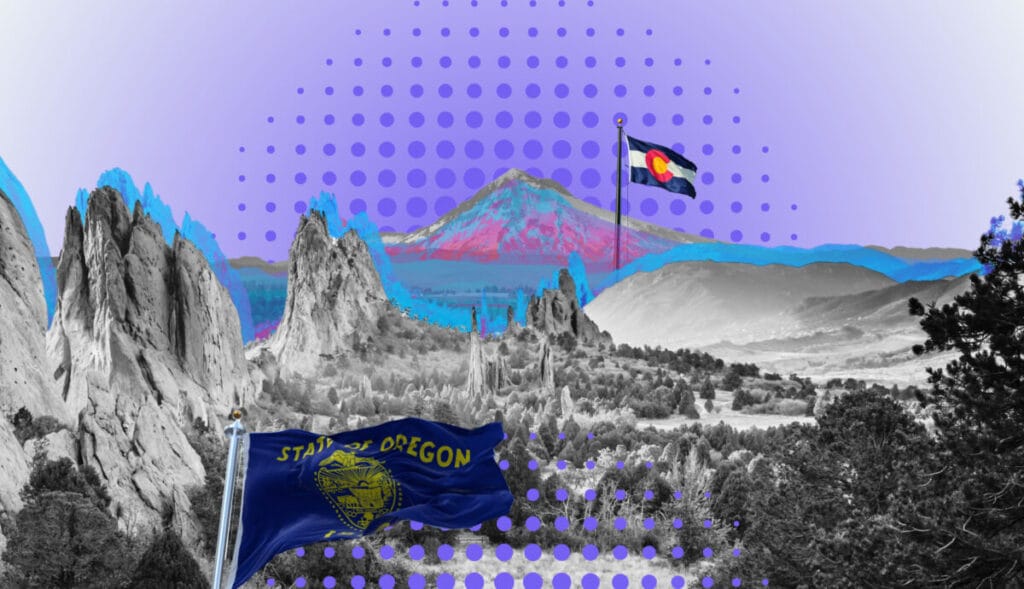
Where are Psychedelics Legal in the U.S.?
Psychedelics are not fully legal anywhere in the United States. Classic psychedelics, like psilocybin mushrooms, LSD, and DMT are Schedule I controlled substances. MDMA, mescaline, bufotenine, ibogaine, and several psychedelic analog compounds fall under the DEA’s Schedule I designation as well.
However, Oregon and Colorado recently legalized psilocybin mushrooms for adult use under professional supervision. These legal psychedelic states created regulated access industries – as of this writing, Oregon is ahead of Colorado – but do not allow retail sales or public consumption.
Oregon’s Legal Psychedelics Framework
Oregon became the first state to create a paradigm for the legalization of psychedelics after it passed Measure 109, the Oregon Psilocybin Services Act, in November 2020. The Act gave the Oregon Health Authority (OHA) two years to regulate psilocybin production, transportation, delivery, sale, purchase, and establish a psilocybin services industry through licensed healing centers.
In June 2023, the first healing center opened its doors, where Oregon adults over 21 could purchase and ingest psilocybin mushrooms in a supervised environment. State-certified facilitators must be present during the entire experience. Adults do not need a referral or a diagnosis to participate.
Who can become a licensed psilocybin service facilitator in Oregon?
People often assume Oregon’s psychedelic facilitators must be mental health professionals. However, any Oregon resident over 21 with a high school diploma can become a psilocybin facilitator if they complete the state-sponsored training program, pass an exam and background check, and pay a license application and renewal fee.
Oregon’s psilocybin services program did not legalize psychedelic therapy, where licensed practitioners offer psychotherapy services throughout the journey. Thus, facilitators cannot provide professional counseling during psilocybin sessions. Therapists who want to participate in Oregon’s psilocybin program can offer pre- and post-journey counseling.
Expand your therapeutic tools by learning the art of pre-and -and post-psychedelic journey therapy. Enroll in our Navigating Psychedelics Course for Practitioners today.
Which psychedelics are legal in Oregon?
Measure 109 only legalized psilocybin mushrooms in Oregon. And only in a licensed and regulated environment.
Decriminalization in Oregon
However, Oregon’s Measure 110 reduced criminal penalties and expanded addiction treatment services for various illicit drugs, including LSD, psilocybin and psilocin, methadone, oxycodone, heroin, MDMA, cocaine, and methamphetamine. These compounds remain illegal, but they are decriminalized – for now, anyway.
In February 2024, the Oregon Senate passed House Bill 4002, aiming to reverse the decriminalization policy, introducing up to six months in jail for possessing small amounts of psychedelics. The bipartisan bill now awaits Governor Tina Kotek’s review. As of this writing, Gov. Kotek has not indicated whether she will sign it.
Colorado’s Legal Psychedelics Framework
Two years after Oregon’s landmark Psilocybin Services Act, Colorado voted for Proposition 122, the Decriminalization and Regulated Access Program for Certain Psychedelic Plants and Fungi Initiative. Prop 122 made Colorado the second U.S. state to affirm regulated access to legal psychedelics.
Proposition 122 directed Colorado’s Department of Regulatory Agencies to establish a Regulated Natural Medicine Access Program where licensed healing centers will administer supervised natural medicine services. The Department may start accepting facilitator applications by the end of 2024, with healing centers expected to open in early 2025.
The measure also decriminalized personal use and possession of natural medicines but did not provide a framework for retail sales.
Which psychedelics are legal in Colorado?
Colorado’s Proposition 122 defines the term “natural medicine” to initially include only psilocybin and psilocin. However, on June 1, 2026, the term may be expanded to incorporate ibogaine, DMT, and mescaline (excluding peyote) if the Natural Medicine Advisory Board recommends it. Additionally, Proposition 122 decriminalized the possession, growth, and transport of these natural psychedelics for adults age 21 and older.
Decriminalization in Colorado
Colorado’s Prop 122 included a provision for decriminalizing psychedelics. The provision affirms that “possessing, storing, using, processing, transporting, purchasing, obtaining, and ingesting natural medicine for personal use, or giving away natural medicine for personal use without remuneration” is not an offense under state law or the laws of any Colorado locality. It allows Colorado adults to grow natural plant psychedelics and fungi so long as they remain in the person’s private home and are secured from access by minors.
However, Colorado’s lawmakers recently revised the bill, placing $100 penalties on public consumption and $1,000 fines on people who violate the private property requirement.
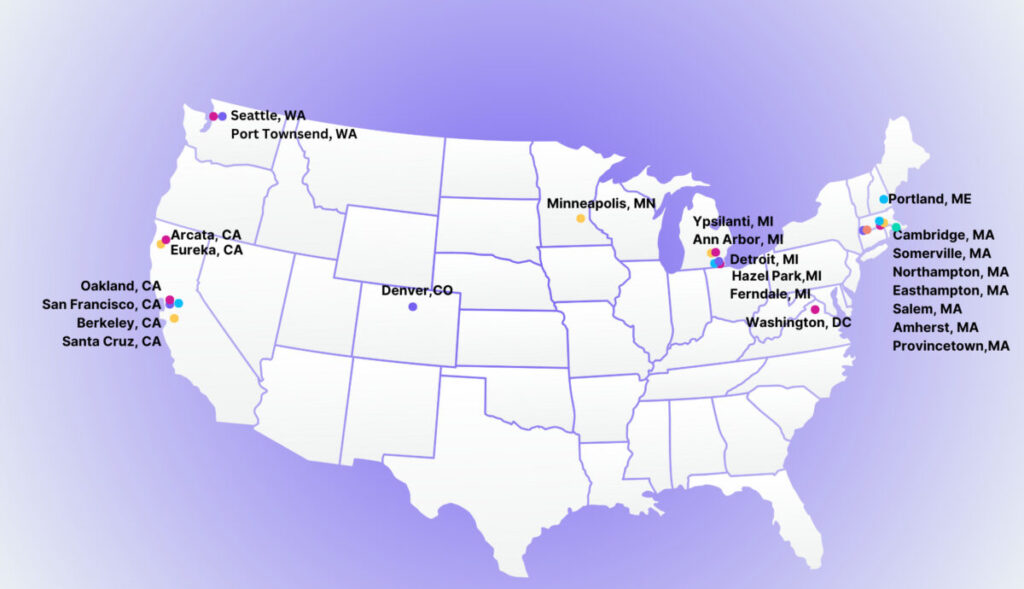
Where in the U.S. are Psychedelics Decriminalized?
As of April 2024, Oregon and Colorado are the only states to enact statutes decriminalizing psychedelics use, possession, or cultivation. However, more than two dozen U.S. cities have deprioritized criminal enforcement of psychedelic offenses.
Which U.S. Cities Have Deprioritized Enforcing Criminal Penalties for Psychedelic Use?
Twenty-four cities, primarily in Massachusetts, California, and Michigan, have reduced psychedelics offenses to the lowest possible law enforcement priority. Most resolutions incorporate entheogenic plants and fungi, including psilocybin mushrooms, mescaline (except peyote), and ayahuasca. Most reforms exclude synthetic compounds like LSD, MDMA, and ketamine.
The current list of municipalities that have reduced psychedelic offenses includes:
1. Seattle, WA
2. Port Townsend, WA
3. Berkeley, CA
4. San Francisco, CA
5. Santa Cruz, CA
6. Oakland, CA
7. Eureka, CA
8. Arcata, CA
9. Denver, CO
10. Ann Arbor, MI
11. Detroit, MI
12. Hazel Park, MI
13. Ferndale, MI
14. Ypsilanti, MI
15. Portland, ME
16. Minneapolis, MN
17. Cambridge, MA
18. Somerville, MA
19. Northampton, MA
20. Easthampton, MA
21. Salem, MA
22. Amherst, MA
23. Provincetown, MA
24. Washington, DC
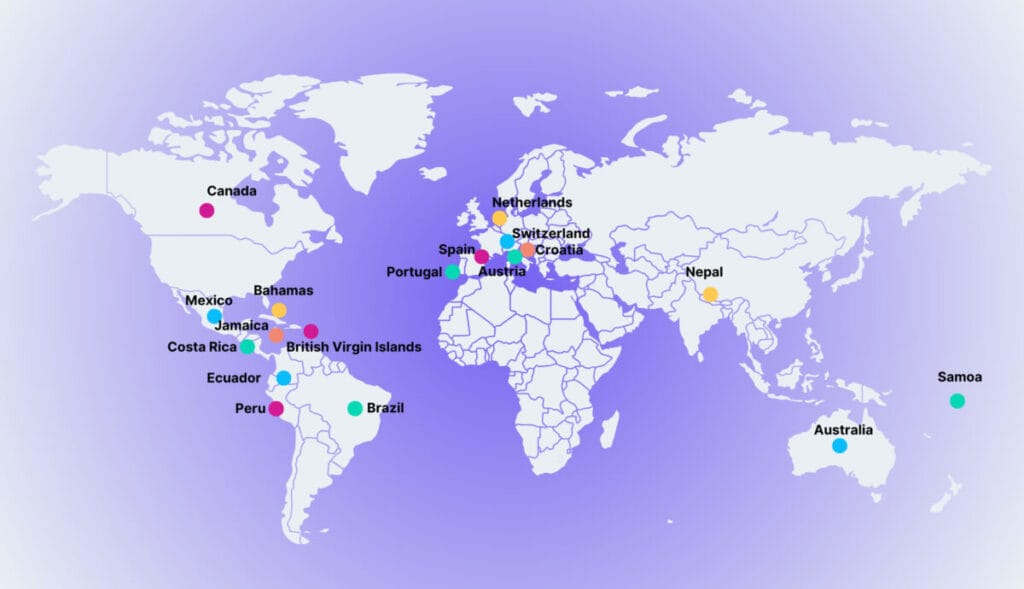
Where Are Psychedelics Legal Around the World?
Legal psychedelics only exist in a handful of places, including Jamaica, Brazil, Nepal, Samoa, and the British Virgin Islands. However, several countries allow psychedelic use and possession through decriminalization and spiritual freedom measures.
Austria
Austria decriminalized personal possession of psilocybin in 2016 and generally avoids criminal penalties as its first drug enforcement option. However, all psychedelics are still illegal under federal law in Austria.
Croatia
Croatia decriminalized drug use in small quantities, including psychedelics. However, psychedelics remain illegal overall in the nation. Offenders caught possessing psychedelics in Croatia may face mandatory rehab, community services, or a fine of €2,680.
The Czech Republic
The Czech Republic’s criminal code does not treat drug use as an offense. Possessing small quantities of drugs, including psychedelics, for personal purposes is punishable by a fine.
Costa Rica
Costa Rica does not list Ayahuasca as a controlled substance and broadly accepts its cultural use. This acceptance allows ayahuasca retreat centers to operate without fear of prosecution throughout the country. Additionally, Costa Rica’s societal norms accept psilocybin use in traditional and spiritual contexts, although psilocybin mushrooms are not explicitly legal.
Canada
Canada has not legalized psychedelics in a regulated or commercial capacity. However, Vancouver and Toronto have decriminalized psilocybin possession under certain circumstances and are home to several psilocybin dispensaries operating in defiance of the law. Additionally, British Columbia recently decriminalized MDMA, methamphetamine, crack, powder cocaine, and opioid possession in small quantities of up to 2.5 grams.
Bahamas
The Bahamas legally allows the use of psilocybin-containing mushrooms, as they are not classified as a “dangerous drug” by the government. The 1971 UN Convention technically prohibits the sale of all illicit drugs in the Bahamas. However, psilocybin retreats and ibogaine clinics are prevalent throughout.
Brazil
People can readily find ayahuasca and mushroom retreats in Brazil and likely won’t face criminal penalties for possession or use. Neither are commercially available, and the active compounds they contain are banned. However, Brazil legalized the ayahuasca plant for spiritual use in 1968. And psilocybin mushrooms do not fall on the country’s list of prohibited substances.
British Virgin Islands
The British Virgin Islands permit the legal use and possession of psilocybin mushrooms. Selling them remains illegal. However, visitors and locals report that mushrooms are available for discreet purchase at public events.
Jamaica
Jamaica has become the world leader in the legal psychedelics industry. The Jamaican government actively promotes the nation as a destination for researching, developing, and exporting psilocybin products. It has set interim protocols for supporting cultivation and processing. Jamaica is also a global hub for psychedelic retreats and retail sales.
Mexico
Psilocybin mushrooms are Schedule I in Mexico. However, Indigenous communities openly use psilocybin mushrooms in traditional healing rituals, and several psychedelic retreat centers operate openly in Mexico. That’s because Article 195 of the Penal Code says Mexico’s Federal Public Ministry will not prosecute people who possess narcotics for personal medical treatment or who have peyote or hallucinogenic mushrooms intended for traditional ceremonies.
Netherlands
Magic truffles are legal in the Netherlands and available for sale in smart shops throughout Amsterdam. Additionally, psychedelics retreat centers operate legally in the nation, serving various entheogenic plants. However, possessing, selling, and using traditional psilocybin mushrooms remains illegal in the Netherlands. Additionally, psilocin, mescaline, and DMT extracts are banned, even for religious use.
Nepal
Psilocybin mushrooms are unscheduled in Nepal, meaning the government does not regulate or criminally prosecute their use, possession, sale, or distribution. According to local producers, psilocybin mushrooms have a significant cultural presence in the country, and adults regularly consume the fungi for spiritual purposes.
Peru
Peru legalized Ayahuasca in 2008 for traditional use, declaring it a National Cultural Patrimony. The law does not allow for consumer ayahuasca markets. However, commercial psychedelic retreats operate throughout the nation, and tourists travel from all over the world to attend.
Ecuador
In Ecuador, certain medicinal plants and derivatives, including San Pedro and ayahuasca are legally permitted in certain ceremonial contexts. Retreats serving foreigners are common throughout the country.
Portugal
Portugal enacted Law 20/2000 decriminalizing the personal possession of all illicit drugs, including psychedelics. Adult use of psychedelics is now an administrative offense rather than a criminal act in Portugal. At worst, offenders may have to surrender their stash and engage in community service.
Samoa
Psilocybin mushrooms are legal in Samoa for personal use, possession, cultivation, and transport because they do not appear in the nation’s drug laws. Psilocybin mushrooms grow in natural settings and are called “Pulouaitu.”
Spain
Law enforcement in Spain typically does not criminally prosecute adults for possessing or using psychedelics like psilocybin. However, localities retain the authority to establish their own regulations.
Switzerland
Switzerland permits members of the União do Vegetal Church to legally consume ayahuasca for religious purposes. The country also decriminalized ingesting psychedelics in “negligible quantities,” including LSD, MDMA, and psilocybin, though it doesn’t clearly define what these quantities are. Additionally, in limited cases, therapists in Switzerland can conduct research with LSD.
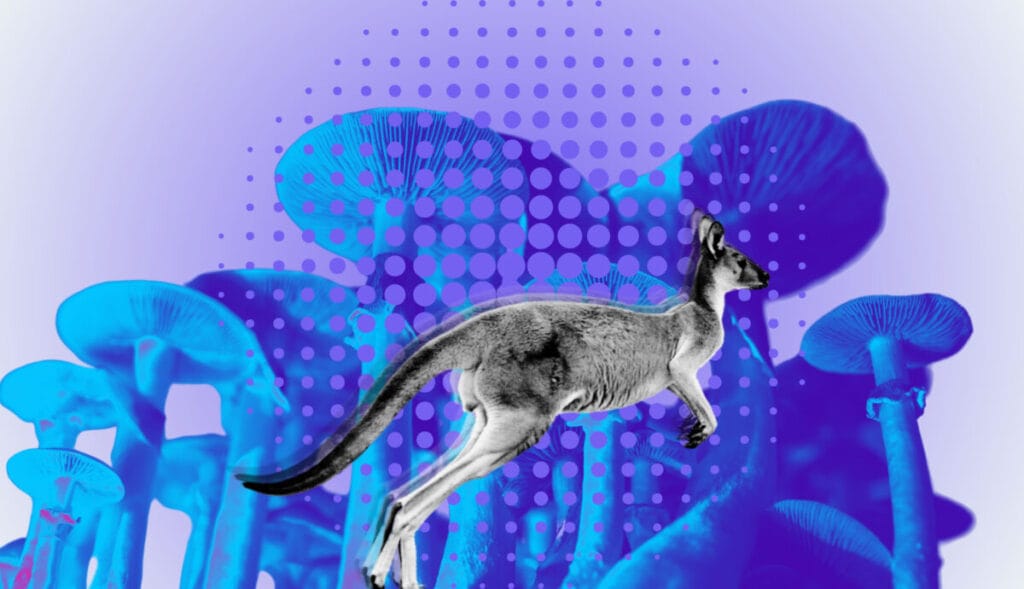
Where is Psychedelic Therapy Legal Around the World?
Psychedelic-assisted psychotherapy is a brand-new modality in the West. Australia is the only country to codify this medical protocol into law.
MDMA and Psilocybin for PTSD and Depression in Australia
On February 3rd, 2023, Australia became the first country to legalize psychedelic therapy. The nation’s Therapeutic Goods Administration (TGA) declared that psychiatrists could prescribe MDMA or psilocybin to manage PTSD and treatment-resistant depression. In September 2024, the first psychedelic therapy center, Clarion Clinics, opened its doors, charging patients $24,000 for a nine-month protocol.
Ketamine Therapy in the U.S. and Around the World
Ketamine therapy is legal throughout the United States due to its FDA-approval status. Canada, the United Kingdom, the Czech Republic, Germany, and several other nations allow ketamine for “off-label” medical and therapeutic use as well.
Ketamine is not a classic psychedelic compound. However, it does elicit dissociative psychedelic effects and a reported rapid mood boost through its NMDA receptor action. Most clinicians prescribe or administer ketamine as an off-label drug in IV, tablet, or nasal spray form for various mental health concerns, including treatment-resistent depression, chronic pain management, PTSD, severe anxiety disorder, suicidality, OCD, and substance abuse issues.
Treatment does not require that patients seek professional mental health support. However, ketamine-assisted psychotherapy can help people experience more enduring benefits compared to receiving the medicine alone.
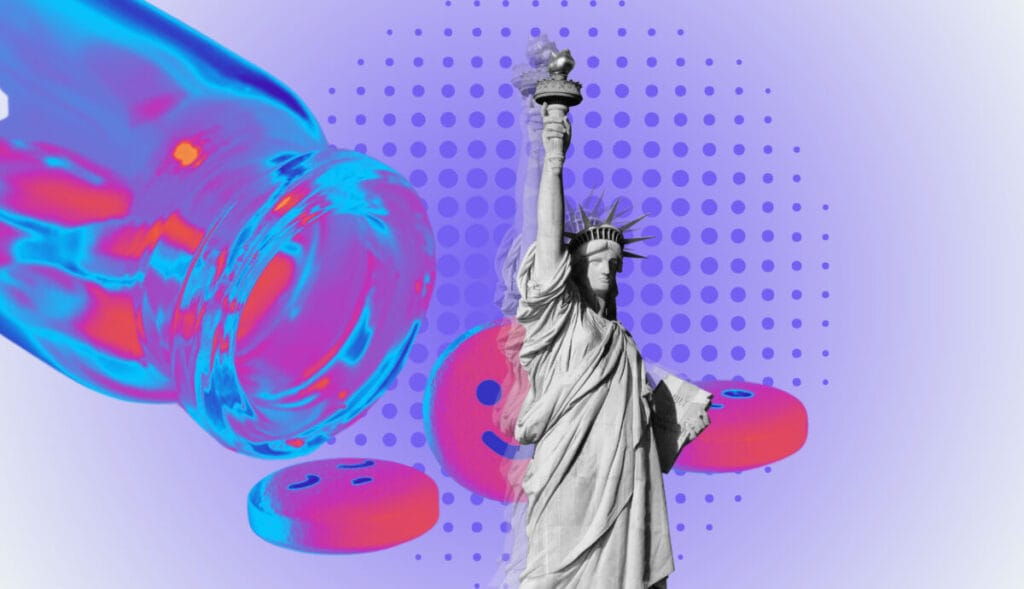
MDMA Therapy in the U.S.: A Look Ahead
In December 2023, the nonprofit Multidisciplinary Association for Psychedelic Studies (MAPS) submitted a new drug application for MDMA-assisted therapy. The application currently sits with the FDA for review, with potential approval as soon as August 2024. If approved, the DEA must reschedule the compound from Schedule I within 90 days. About half of the states are expected to follow federal recommendations. The other half must take legislative action to change their drug laws before patients can access the treatment.
Regardless of the red tape ahead, the U.S. could soon become the second nation to legalize psychedelic therapy, providing life-saving medicine to the most vulnerable populations.
